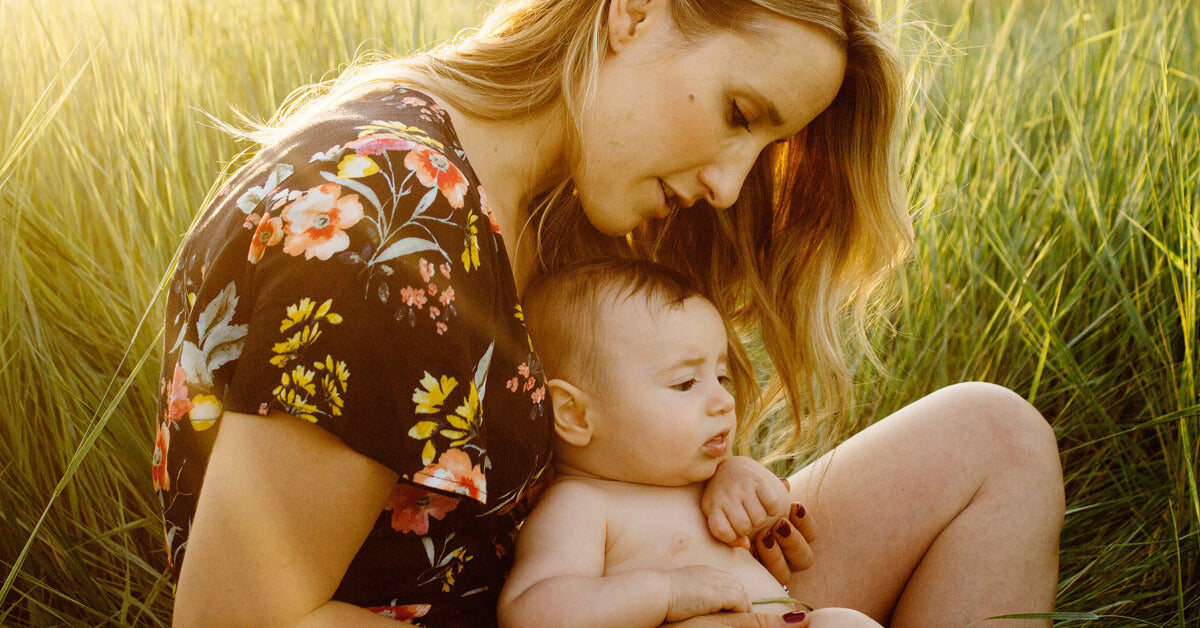
What Hormonal Changes Occur After Giving Birth?
Pregnancy comes with many changes hormonally and physically. The drastic drop in hormones from the time you give birth along with sleep deprivation, can make for a very emotional first week.Pregnancy comes with many changes hormonally and physically. As soon as the egg is fertilized, wild surges of various hormones start occurring, which is why so many women have crying spells, anger and other mood swings. It also comes with hair loss or growth, many women find that with the prenatal’s mixing with the hormones, their hair has never looked better. Some others find the opposite. Even with the drastic drop in hormones from the time you give birth it takes, on average, six months to even out. In that time, you may develop the baby blues. The baby blues are a period of minor depression (not as bad as Postpartum Depression) and crying spells. Not every woman develops the baby blues and some go on to develop full PPD.
The baby blues are common around the second to third weeks postpartum. They will taper off, but the first week can be one of the most emotional weeks. The third day is known to be one of the worst- it’s when the sleep deprivation mixes with the estrogen and progesterone levels dropping and if breastfeeding, prolactin and oxytocin are rising and falling- the first week, all combine and make for a very emotional week.
Here are some of the positive and negative hormonal effects you may experience both during pregnancy and after.
Positive Hormonal Side Effects
Most people don’t have many positive associations with hormones and hormonal imbalances like pregnancy. Most people tend to think about the mood swings and random crying spells that come with it but there are positive effects as well.
One of the changes pregnancy brings is the “glow.” The hormones come together to create clearer skin and you can find yourself looking like you have a glow.
After pregnancy, if you developed pregnancy acne, you will likely see it clear back up. It may take a little while, but typically pregnancy acne heals after 4 to 6 months, but treatments can help.
Negative Hormonal Side Effects
When you’re in the first trimester of pregnancy, you tend to feel like you’re on an emotional rollercoaster. You go into crying spells as well as lose your temper quickly. Some women feel sick every time they smell food and find themselves craving food as well.
For a lot of women, these even out by the second trimester and sometimes come back during the end but others find relief through the end of the pregnancy.
After the pregnancy ends, the hormones quickly move back to normal but the hormonal crash can lead to more mood swings that can be made worse with the lack of sleep.
The first six months will be when your hormones are going back down to normal and regulating. It’s typically the timeframe before you get your first period post-birth and the time most women are breastfeeding.
Some skin problems can occur during pregnancy that can last into the first 6 months postpartum. Some women end up with spider veins that show through, it happens especially around the nose and cheeks. This can also disappear between four and six months but sometimes requires professional treatments and sometimes stays.
There are two major hormones that are affected by childbirth- Prolactin and Progesterone. The two typically balance themselves during pregnancy but after you have the baby, your progesterone levels typically go way back down while prolactin is elevated to help milk production.
Six months is typically the magic time when a lot of women start to get their cycles back. When the cycle comes back, your ovaries will start producing progesterone again and you will find that you’re not as imbalanced as you once were.
Another hormone that has a strong drop during the postpartum stage is Estrogen. Since estrogen levels are lower during breastfeeding, this imbalance can cause fatigue, headaches, irritability, weight gain, anxiety, depression, hot flashes, night sweats and other problems.
Postpartum Thyroiditis is another hormonal disorder that can occur. The thyroid is a tiny gland in your neck but plays a vital role in nearly every body system. The thyroid produces TSH, if levels get too high it causes the thyroid to become underactive and too low, hyperactive. Postpartum Thyroiditis is caused by inflammation of the thyroid gland. It can cause the thyroid to become over or under active. If you experience any of these symptoms, you need to speak with a doctor. If your thyroid is thrown off too bad, there are medications but if it’s not treated, it can lead to stroke or a thyroid storm. A thyroid storm is a medical emergency.
Symptoms of postpartum thyroiditis may include shakiness, heart palpitations, irritability, insomnia or hypersomnia, weight gain or loss, fatigue, sensitivity to cold or heat, depression or anxiety, dry skin or vaginal dryness.
Pregnancy changes a lot of things about your body but once you start getting your cycle again, things will go back to normal. If things don’t go back after you start getting your period, it’s a good idea to bring it up with your doctor because there are times pregnancy will throw everything off balance and you’ll need treatment. If things aren’t severe or permanent, just keep in mind that the imbalances only last a very short period of time and try to relax with your new baby.
|
|
Meet Our KeaMommy Contributor: Bethany Boggs Bethany Boggs is a 30 something married mother of 2 kids. When she is not writing or working her day job, you can find her wrangling her 2 girls and 3 cats while sipping cold Starbucks and trying to remember why she walked into the room. |


























































